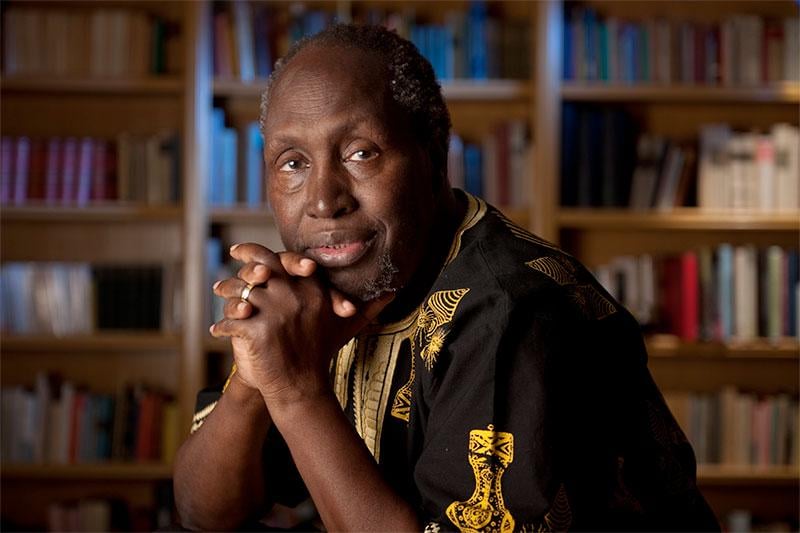Ngugi wa Thiong’o, a luminary in African literature, has left an indelible mark on the literary landscape with his profound works that resonate with themes of colonialism, postcolonialism, and the African experience. Born James Ngugi on January 5, 1938, in Kamiriithu, Kenya, he was raised in a vibrant family setting that instilled in him a deep connection to his roots. Educated at mission-run schools and later at Makerere University College in Uganda and the University of Leeds in England, Ngugi embarked on a transformative journey that would shape his identity and artistic vision.
In a powerful act of defiance against colonial influences, Ngugi wa Thiong’o reclaimed his cultural heritage by adopting the name Ngugi wa Thiong’o, shedding his birth name, James Ngugi. This symbolic gesture underscored his commitment to embracing his Kenyan Kikuyu roots and resisting the erasure of indigenous identities perpetuated by colonial forces.
Ngugi’s literary career blossomed with the groundbreaking performance of his play “The Black Hermit” in 1962, marking the emergence of a visionary voice in African storytelling. His novels “Weep Not, Child” (1964) and “The River Between” (1965) catapulted him into literary stardom, captivating readers with narratives that delved into the complexities of colonialism, the Mau Mau Uprising, and Kenya’s struggle for independence. Through his prolific body of work, Ngugi illuminated the post-independence challenges faced by his compatriots, advocating for decolonization and the preservation of African languages in literature.
A staunch advocate for African self-determination, Ngugi wa Thiong’o fearlessly confronted oppressive regimes, a stance that led to his imprisonment in Kenya for daring to speak truth to power. Undeterred by persecution, he sought refuge in exile first in England and later in the United States, where he continued to amplify his voice as a vocal critic of colonial legacies and a champion of African autonomy.
Among his notable works are “A Grain of Wheat” (1967), “Petals of Blood” (1977), “Devil on the Cross” (1982), and the seminal piece “Decolonizing the Mind: The Politics of Language in African Literature” (1986). Notably, his novel “Wizard of the Crow” (2006) stands as a testament to his enduring legacy in shaping contemporary African literature.
One of Ngugi’s most acclaimed achievements is the short story “The Upright Revolution: Or Why Humans Walk Upright” (2019), a transcendent work that has been translated into over 100 languages, solidifying its position as the most translated short story in the annals of African writing. This remarkable feat underscores Ngugi’s universal appeal and the profound impact of his narratives on a global scale.
Ngugi wa Thiong’o’s passing at the age of 87 has reverberated across the literary world, leaving a void that echoes the loss of a literary giant. His enduring legacy as a trailblazer in African literature and a beacon of cultural resilience will continue to inspire generations to come, reminding us of the transformative power of storytelling in shaping our collective consciousness.
As we bid farewell to Ngugi wa Thiong’o, we honor his unwavering dedication to amplifying African voices, dismantling colonial structures, and advocating for a more just and inclusive world. His words will echo through the corridors of time, reminding us of the enduring legacy of a literary luminary whose brilliance transcends borders and generations.

